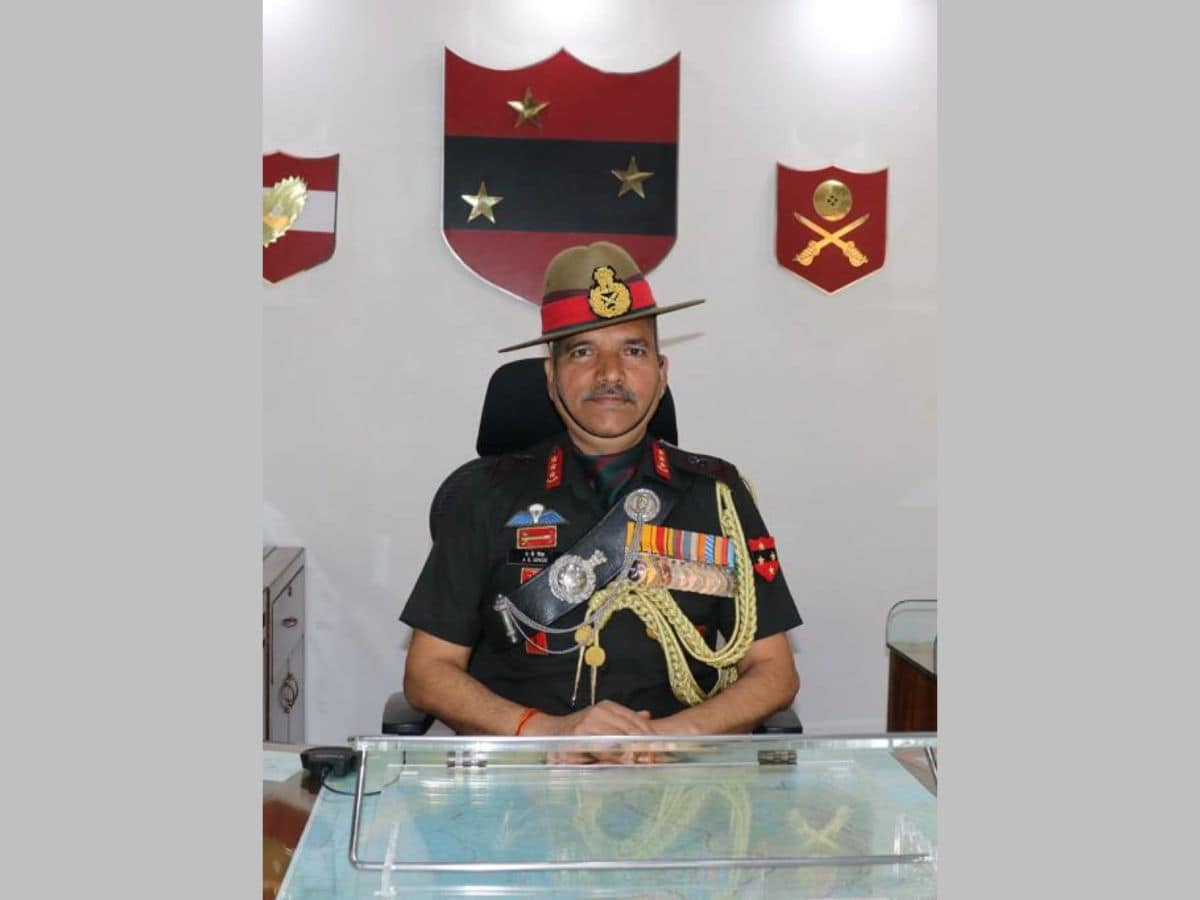
Pune: Indigenisation, technology absorption and operational capability enhancement will be the focus areas of the army’s Southern Command, according to Lt General Ajai Kumar Singh, General Officer Commanding-in-Chief of the Southern Command.
The Southern Command, which celebrates its 130th Raising Day on April 1, is the oldest and the largest command of the Indian Army, covering 41 per cent India’s landmass spread over 11 states and four Union Territories.
In an interview to PTI, Lt Gen Singh, the 38th GOC-In-C of the Southern Command, also spoke about the Command’s commitment to leverage technology as a catalyst for transformative change during the year 2024, being observed by the army as the Year of Technology Absorption.
“This theme underscores our commitment to leverage technology as a catalyst for transformative change, as well as to use in-house expertise to innovate solutions to our operational and logistic requirements and give shape to these projects in collaboration with domestic defence industry,” Lt Gen Singh said.
“The Southern Command has made a significant contribution in India’s focus of being self-sufficient in defence manufacturing. Being geographically co-located with the industry hubs of the country and having a large number of Field Firing Ranges (FFRs), the Southern Command acts as a test bed for trials of various weapon platforms, critical defence equipment and sophisticated ammunition,” he said.
Seven innovations fielded by Southern Command have been selected for pan-army implementation along with transfer of technology to industrial partners for production, he said.
As part of regular outreach to industry and academia, state wise seminars-cum-exhibitions are regularly conducted,” he said, adding the the events are conducted at Pune in February and May and 150 industries participate in them.
Similar events are conducted at Chennai and Hyderabad and are also being planned in Coimbatore, Thiruvananthapuram, Ahmedabad and Bengaluru, Lt Gen Singh said.
The third directory featuring details of more than 650 industries was released in January this year, to strengthen the Atmanirbhar Bharat-enhancing outreach and collaboration with industrial stakeholders.
Maharashtra had its first Defence Expo of all MSMEs with an aim to enhance the state MSME ecosystem and position it as the hub of indigenous defence manufacturing under the Atmanirbhar Bharat initiative, he said.
“Southern Command displayed indigenous equipment and systems such as T-90 tank, BMP Mk-II amphibious infantry fighting vehicle, Soltam and Dhanush towed howitzers, K-9 Vajra artillery gun and Pinaka multiple rocket launcher developed by the Defence Research and Development Organisation for the army,” he said.
All three service chiefs visited the exhibition, which highlighted the army’s resolve to promote innovation and initiatives under Aatmnirbhar Bharat, he said.
The Southern Command covers most of peninsular India. Operational commands of the Indian Navy and IAF are situated within the Command area, including Frontier HQs of BSF and Coast Guard. This gives the Command a unique opportunity and added dimension to conduct tri-services operations or multi agency operations, he said.
“Joint integrated operations with multiple domains approach is the way ahead, and to improve the integration, and synergy between the three services, the Southern Command recently conducted two major joint exercises, Exercise Bharat Shakti and Exercise TriShakti Prahar. Exercise Bharat Shakti was witnessed by PM Narendra Modi,” he said.
The exercises, involving all the three services, demonstrated the prowess of indigenously manufactured weapons and equipment of Indian armed forces and validated tri-service application on the western front in multi domain environment, he said.
“As part of the army’s transformation and operational effectiveness, the first medium lift attack helicopter squadron in the Southern Command region was raised on March 15 this year. The squadron will be equipped with state-of-the-art Apache AH 64E helicopters from Boeing.
“Six contracted helicopters will be delivered in the country in two phases in the coming months,” he said.
“The Induction of Apache helicopters will enhance the army’s operational reach and aerial strike capabilities in the western sector. These helicopters are capable of undertaking missions in all weather and terrain conditions along our borders,” Lt Gen Singh said.
The top army commander also spoke about Southern Command providing an “excellent opportunity” for joint training with friendly foreign countries. “The Indian Army is currently engaged with over 100 countries and this includes bilateral joint exercises with over 25 countries, training of over 3,000 military personnel of 70 countries and manning of 16 training teams worldwide,” he said.
Accordingly, several joint exercises are conducted regularly with friendly foreign countries like France, USA, Russia, Maldives, UAE, Japan, UK, Singapore, Vietnam, Sri Lanka, Seychelles and some other African nations, he said.
Southern Command is the hub of military diplomacy because of these numerous foreign exercises happening round the year, he said.
Southern Command was raised on April, 1895 and has continued to be stationed in Pune since its existence.
The Command has successfully participated in various pre and post-Independence operations.
Southern command played an important role in the merger with the Indian Union of Junagarh and Hyderabad shortly after Independence and also in liberation of Goa and Diu in 1961.
The Command was also involved in assistance to neighbouring countries, like thwarting a coup attempt in Maldives during 1988 and Operation Pawan in Sri Lanka in 1987.
Operation Pawan was the code name assigned to the operation by the Indian Peace Keeping Force to take control of Jaffna, the capital city of the Northern Province of Sri Lanka, from the Liberation Tigers of Tamil Eelam.
The Southern Command guards 1,200 km of India’s international border and 7,000 km of coastline.
